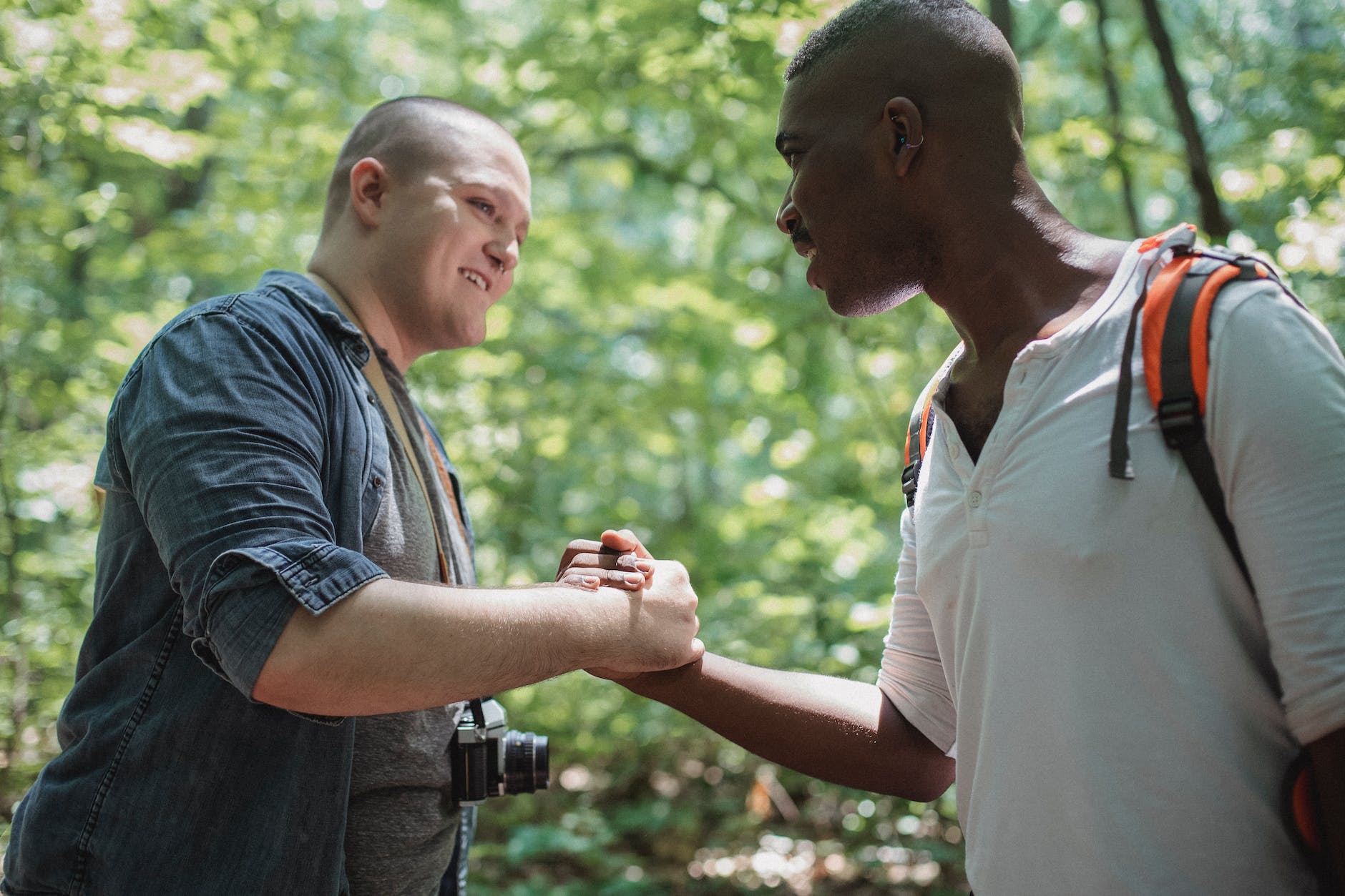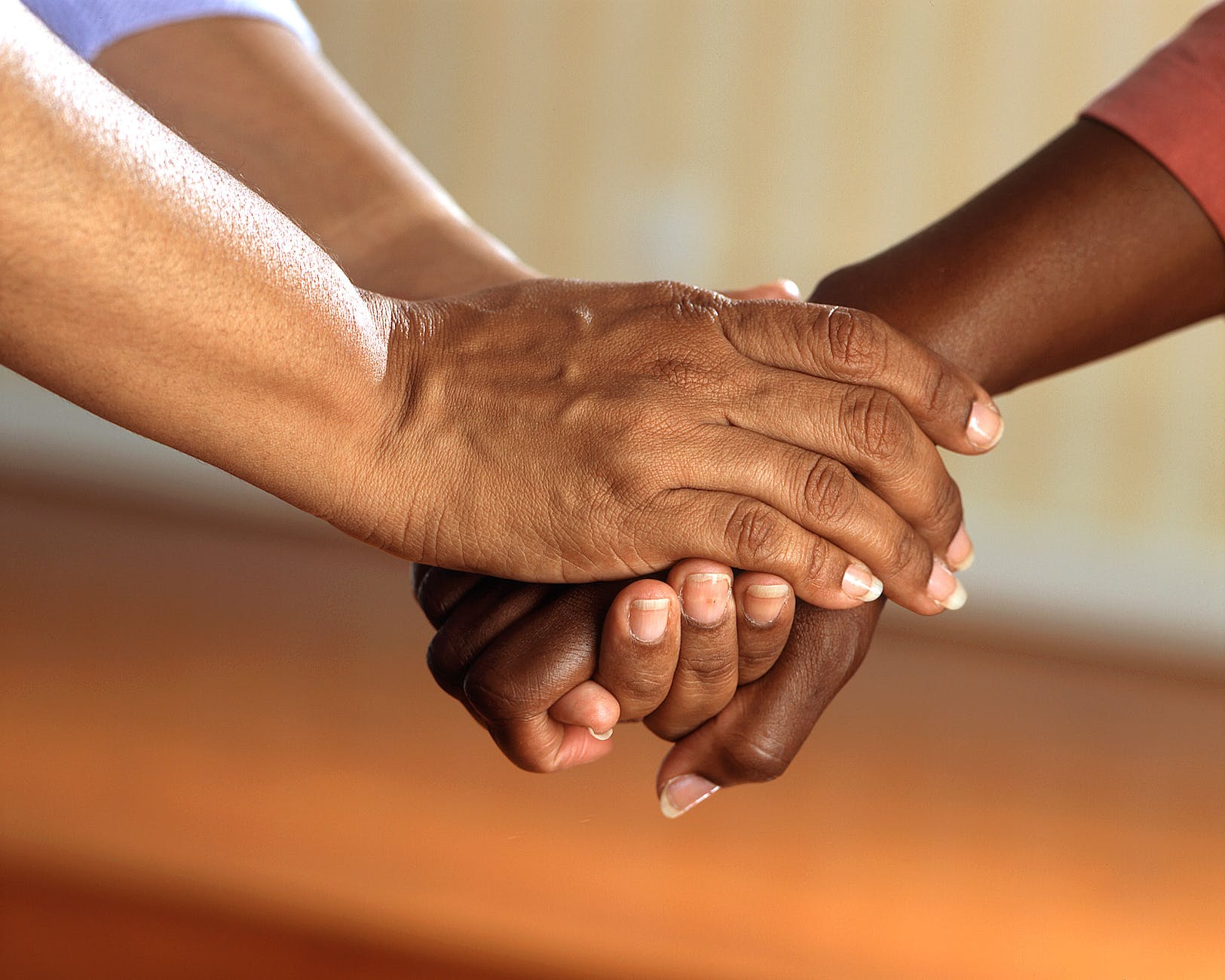“Every individual matters. Every individual has a role to play. Every individual makes a difference.”–Jane Goodall

Listening to a podcast recently, a word piqued my curiosity. Sawubona. The speaker stated that this term had a moment of notoriety in the 1990s in the business world based upon a book written to encourage companies to solve group problems through various systems of learning. This may explain why I never heard of it up until now as I was, and still am, in the field of education as opposed to business.
As I understand it, at its most basic level, it is a Zulu expression of greeting, another way of saying “hello.” However, as heard in the podcast, and confirmed in later reading, its meaning is far from a common greeting.
Depending upon the source read, Sawubona, means “I see you,” or “We see you.” In response–again, depending upon the source–the other person greets, “Yebo, Sawubona,” (Yes, I/we see you too), or “Shiboka” (I exist for you). Regardless, it is the seeing of the other person and acknowledgement of existing to help the other, that most stood out to me.

Quite often, in our morning rush, our greetings and responses are typically short, polite, and given with a smile as we promptly move on to our work and/or day at hand. Certainly, there are occasions when we pause long enough to ask about a specific event or person, but as our schedule often demands, we listen, long enough to be polite before moving quickly on, without really looking.
I know I do this, and I feel fairly certain that I am not the only one. Therefore, I do not want the thesis of this piece to be interpreted as finger wagging or shaming. Instead, I hope to provoke some thought regarding the importance of seeing our shared humanity in one another and existing in a state of respect –even if we don’t see eye-to-eye with everyone with whom we meet.

Respect, according to Merriam-Webster, is derived from the Latin root, respectus, which means, looking back (at), refuge, regard, and consideration. The beauty, to me, of Sawubona is in the underlying message of regard for the other person. I SEE you is such a powerful acknowledgement. It is a way of communicating that I SEE (regard/consider) your uniqueness, your talents, and your gifts, no matter the differences we may have.
I once heard a story of a farmer who espoused hate towards a certain political figure. As it turned out, the politician asked to visit the farmer for a conversation. The farmer told the politician’s team that he felt reluctant for the politician’s visit because the farmer espoused a certain faith, and given the public servant’s political status, the farmer assumed the politician could not possibly have a faith affiliation. Nevertheless, a meeting was arranged, and the two men of opposing sides walked the farmer’s land together as the farmer talked and shared his concerns about his way of living. The political figure looked and listened.
Later, as the conversation progressed, the two men ended up in the farmer’s house, drinking coffee and learning more about one another. When the farmer realized that he, indeed, shared the same faith practices as the politician, he called a few of his friends to join in the conversation. As the story goes, upon the politician’s departure, the two men shook hands, but the farmer made it clear that he still would not vote for this political figure. However, he added that he was surprised to learn the two of them had more in common than he realized. He further invited the politician to return to his home at a later date, so that they could continue their conversation.

Some might ask what is the point of the story if the farmer was not convinced to vote for the politician. Instead, I think it makes a case for the idea of Sawubona. Two men, on opposite sides of the political fence, spending time with one another, asking questions, listening, learning, and finding some common ground in their shared human experience is a way of conveying consideration or regard for one another. They didn’t have to agree on all points in order to respectfully get along. In fact, as it turned out, the politician would later reach out to the same farmer when certain legislation was being considered that would have affected the farmer and his community in order to gain a greater understanding of the potential impact.
Reflecting on Sawubona is a lesson of seeing others and being seen by others. It is understanding that we do exist together for one another. We may have our differences, but it is those collective differences that can create a community of support. Each individual has their own gifts and talents that we bring to the proverbial community table. And, thank heavens, because there are so many skill sets of others upon which I rely in order to live, work, and participate in many other daily activities.
When we truly take time to see others, we can see the common struggles, celebrations, and life experiences. We can feel compassion for another’s suffering, and we can feel the joy of their milestone celebrations. Furthermore, we can appreciate the gifts and talents of others, even those with whom we may disagree on certain subjects.

In the end, I am not suggesting that the idea behind Sawubona is easy. Instead, I encourage us to think of Sawubona as a practice. A practice in which we take time to look others in the eye more frequently when greeting in order to make others feel seen. Additionally, it is a practice for when we find ourselves feeling angry or incensed by an opinion different from our own, to challenge us to pause, and look more closely for the common human thread shared with that person of opposition.
One word cannot solve all problems, but if we begin to look for more Sawubona moments, it might allow for more opportunities–like the farmer and the politician–for listening, learning, and finding common ground. When we feel seen/heard by another person, it makes us feel respected, and that feels good. Therefore, imagine the positive reverberations that could be created within our own local communities if we began to offer that same Sawubona feeling to even one person per day. It is certainly worth considering.

